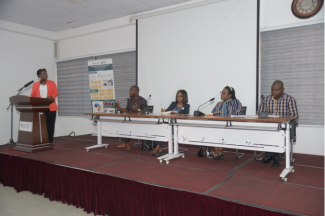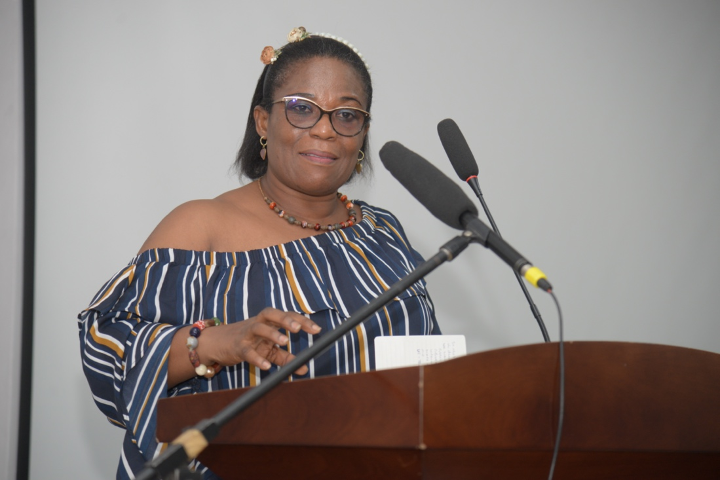
The Kofi Annan Enterprise Hub for Agricultural Innovation (KAEHAI) at the West Africa Centre for Crop Improvement (WACCI), University of Ghana (UG), organized an Agricultural Entrepreneurship Ecosystem Stakeholder Engagement Workshop, as part of the launch of the KAEHAI – KGL Foundation Entrepreneurship and Incubator Programme. The workshop was preceded by the Programme Launch on March 13, 2023 at WACCI and was meant to bring together experts and stakeholders to discuss the challenges and opportunities in the field of entrepreneurship, and to identify ways in which they can all work together to support the growth of the agricultural entrepreneurship ecosystem in Ghana.
In attendance were Professor Irene S. Egyir, Dean, School of Agriculture; Professor Marian Quain, Deputy Director-General, Council for Scientific and Industrial Research (CSIR); faculty from University of Ghana (UG) and officials from the National Entrepreneurship and Innovation Programme, Ghana Enterprises Agency, the Chamber of Agribusiness, Ghana, Agricultural Development Bank, Prudential Bank and Ecobank Ghana.
In delivering the opening remarks and the purpose of the workshop, Prof. Egyir welcomed the workshop participants and added that there is an urgent need to bring several actors on board to create physical and social structures which can support individuals and organizations venturing into agriculture.

The workshop had two working sessions. The first session explored the topic “Building & Strengthening of the Agricultural Entrepreneurship Ecosystem in Ghana”. Panellists for this session were Prof. Marian Quain, Deputy Director-General, CSIR; Prof. Irene S. Egyir, Dean, School of Agriculture, UG; Mr. David Antwi Ofori, Director of Innovations, National Entrepreneurship and Innovation Programme, and Mr. Abdul Latif Mohammed, Ghana Enterprises Agency.
The panel pointed out that agricultural entrepreneurs currently face several obstacles that impede agricultural innovation and development. Among these challenges are deficient infrastructure, restricted access to land, insufficient agricultural policies, and inadequate financing. Prof. Egyir also added that access to labour is now expensive since the Ghanaian workforce is gradually becoming more educated. Consequently, young people have to bear high labour costs which could restrict implementing any innovative agricultural ideas they may have. To address these challenges, the panellists suggested that financial institutions could consider making funds more accessible to individuals who are poised to go into any farming adventure. They also proposed widespread adoption of insurance policies to shield these entrepreneurs from imminent losses which might deter them from putting in their best work.
